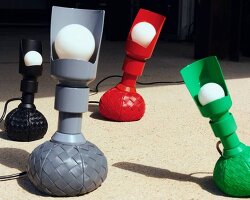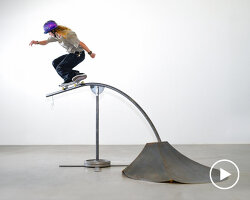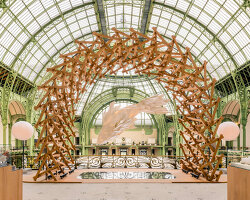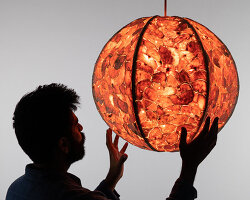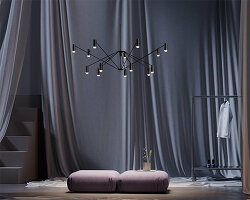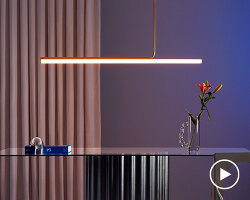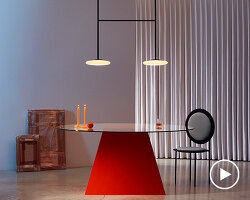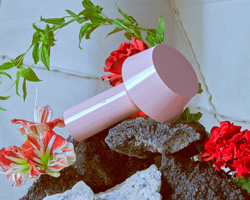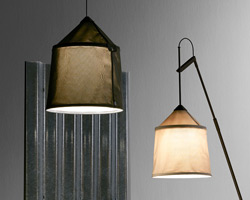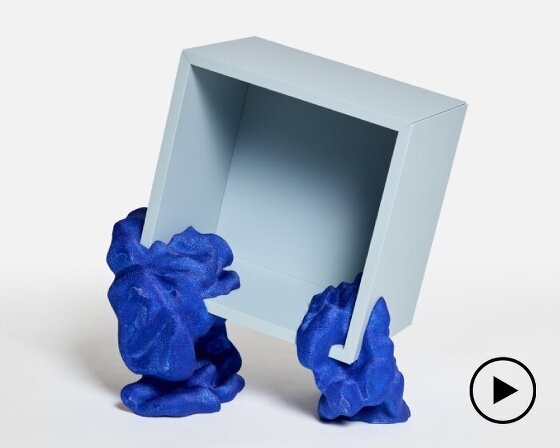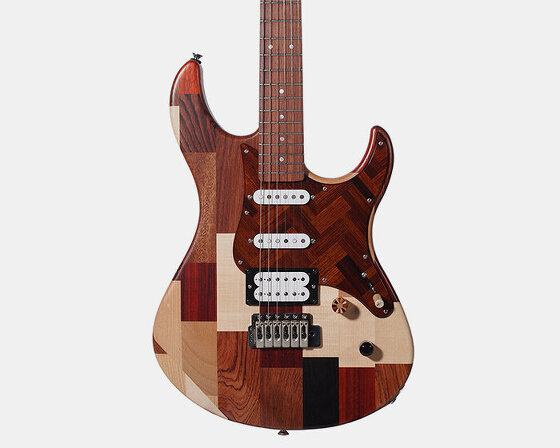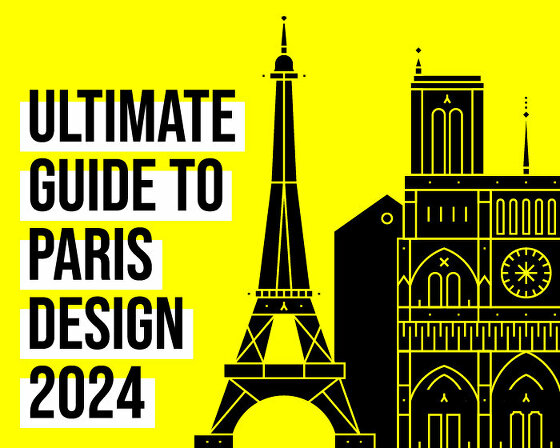the marset reflections on light series documents conversations with architects, designers and artists who work with and think about light on a daily basis. as first covered in a feature with industrial designer xavier mañosa, the project explores the people who hold light at the center of everything they do and every lighting design they create. furthermore, the films delve into the creative vision and background of these designers, the beauty of their creations, and how these objects affect our perception of environments.
the set of interviews, which has also be published as a book, feature creatives who have previously collaborated with the barcelona-based brand marset. this includes; inma bermúdez, stefano colli, joan gaspar, maria reig, christophe mathieu, and mathias hahn. for them, as well as the company, their designs aim to improve the quality of life of the user, and take care of the space in which the light is found. designboom highlights some key moments of the conversations.
inma bermúdez interview for ‘reflections on light’
video courtesy of marset
industrial designer inma bermúdez, who previously designed the ‘followme’ portable lamp for marset, tackles the topical question of what is light, and describes the beauty of it. as well, she provides additional insights into the design process of the ‘followme’ lamp and how the idea behind it first started.
‘light is everything. if we didn’t have light, we couldn’t eat, we couldn’t live. In this sense, light gives us life, it’s necessary for everything… light is life, happiness, enthusiasm, warmth… love. light is everything. ultimately, if there is no light, there is nothing.’ stated inma.
‘it makes me feel peaceful, quiet… I am really bothered when a light isn’t good. it affects my mood,‘ said inma when talking about the beauty of light. ‘to me it is candlelight, firelight, the light of a flame. this might be a bit anthropological, coming from back when we used to live in caves and use fire to illuminate things. at my home, when we light the fireplace, you can spend hours watching the flames. it’s an amazing feeling. it captivates you – it’s hypnotizing.‘
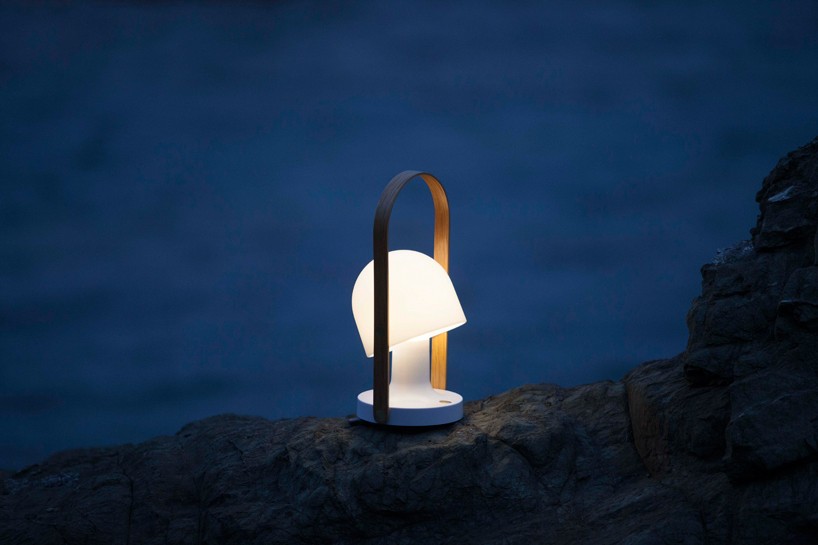
the ‘followme’ lamp by inma bermúdez for marset
‘follow me, follow the light. I love its name – it’s like a treat. its name is part of the product’s essence. the followme is a portable, wireless lamp with batteries. you carry it with you so it’s like a gadget.‘ said inma.
she continues by saying; ‘I like to dig into the company’s past, and I asked marset for information on old designs from 20 or 30 years ago. so javier marset sent me a catalogue and I discovered a lamp from the 1970s which was called the flash. it was a table lamp and I really liked the way the top was attached. that was my point of departure. with the sketch in hand, javier gave me his marketing perspective and talked about a market niche: battery-powered lamps. usually they have a more camping-style aesthetic, more practical, so I began to work to make it really attractive. in conjunction with marset’s technical department we managed to create this delight.‘
stefano colli’s ‘reflections on light’
video courtesy of marset
architect stefano colli has used his practice to communicate and express emotions for the past 25 years. with more recent projects focusing on interior design, his work aims to be more accessible and viable to audiences. in his interview for the ‘reflections on light’ project, stefano talks about his emotional design philosophy, his relationship with light, and whether the perfect lamp exists.
’emotion is what allows you to generate connections with people, your family, your friends, at work, with the users of the spaces you design.’ stefano colli continues to say; ‘when you design for a company, you try to convey the company’s values in realms of identity applied to space. to establish emotional connections with users…creating this attuned harmony is what generates the most benefits.‘
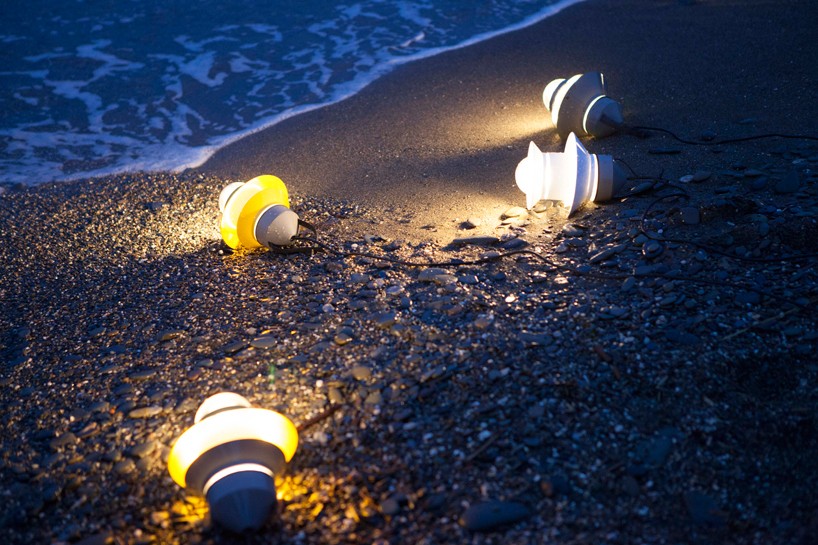
the marset ‘santorini’ lights
‘generally in projects, particularly in light, there are two components: the rational, more functional part, where enough light is needed to be able to work or just be there. and then there is the more emotional part, which follows your mood and depends on how you want to feel in this space.’ he said; ‘because of this, it is very important to be able to change the light in a space and for the light to reflect your mood.‘
‘the perfect lamp does not exist. it depends on the situation, the place and especially the person it is for. every person has his or her perfect lamp.’ summarized stefano.
marset’s project manager, joan gaspar, interview
video courtesy of marset
industrial designer joan gaspar, who’s studio is based in barcelona, has created an extensive lamp collection during his 20 years as project manager at marset. as part of the ‘reflections on light’ series, joan discusses his art background, his role at the lighting company, and whether there is such a thing as perfect light.
‘I don’t consider myself an artist. our job is not a job for artists,‘ said joan gaspar. ‘in fact, the language of industrial design and the decisions taken when designing and manufacturing a product do not tend to have much to do with art. the job of a designer encompasses many facets. we cannot forget that we are working with the product, which tends to be the core of any company. we cannot lose sight of the fact that our job is a trade. the product has to work, and the clients and people have to like it.‘
‘I choose the products to be made, how they are made, what materials they are made of, what feelings the product should convey, what perception of quality it gives off, what kind of light it makes, what purpose it must fill.‘ when talking about his role as project manager.
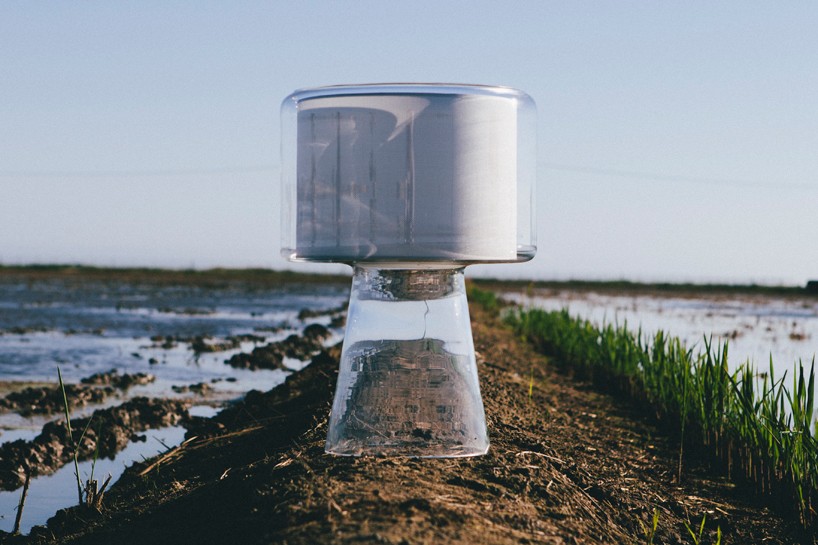
the marset ‘mercer’ lamp
he continued to say; ‘there is always a relationship between the technology and the material used on the one hand and the perception of quality and the light it gives off on the other. the process of bringing a product to market is quite complex. oftentimes during product development, some don’t make it and end up never being manufactured. success comes after many failures.‘
‘with artificial light every moment should have a type of light,‘ stated joan. ‘when you read, you need a reading light; when you have dinner at the table, you should have a light that only lights up the table. at home, light should decorate, and you can discriminate between different lights to create different atmospheres, trying to avoid top-down lighting whenever possible. regardless of whether you like a lamp more or less, one thing is the kind of light it provides and another thing is the physical product itself.‘
maria reig’s perspective on light
video courtesy of marset
politician and businesswoman maria reig of reig captial group, has been fascinated for years with the effects of light found in natural settings, and with how to illuminate the spaces we inhabit. in her document we see her reflection on the nuances of light and shade, in a perspective beyond strictly design.
‘artificial light should not imitate natural light, and most importantly because it can’t. natural light changes every minute,‘ said maria reig. ‘it depends on the color of the nature around it; it is different in the desert than in the forests of northern europe. in the forest it is more metallic than the southern light, which is more yellowish. what I think is that artificial light should be able to adapt to any atmosphere you want to create. there is a plethora of lamps on the market, thousands of them, but to me they all have one flaw: they focus on giving off light instead of the ability to create moods and cast shadows, not only one but several layers of shadows.’
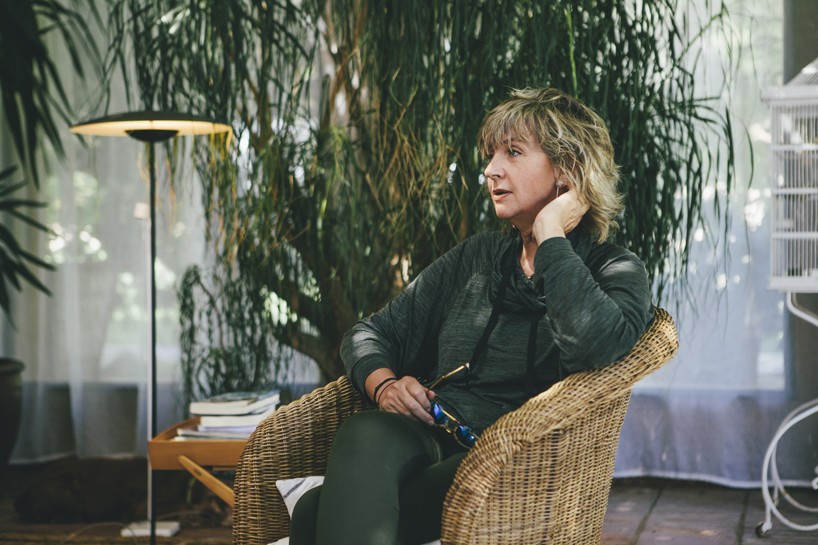
maria reig sitting alongside the ‘ginger’ lamp
‘to me it’s like creating a painting. to light up a room, I think about where I would put the brushstrokes of light. I might decide to light up a bit of curtain in order to spotlight the color I like. I keep changing it throughout the year, in the different seasons, moving the light a bit closer to or further from objects and fabrics.‘ said maria when talking about how she illuminates her house.
christophe mathieu’s interview for the series
video courtesy of marset
industrial designer christophe mathieu, part of the creative team at marset, is responsible for several lighting designs that have been recently produced by the spanish company. in his interview for the ‘reflections on light’ project, he explains how light is such a powerful designing tool, and also whether the perfect lamp exists to him.
‘light is a very powerful tool. just ask architects, interior designers, film directors or photographers. light is what allows everything around us to be visible; it allows us to perceive our environment in a given way, move around space, appreciate colors, shapes and volumes, do activities, make a space look larger or smaller, make it comfortable or even disgusting, and all of this means that it influences our mood and quality of life.‘ said christophe.
‘light is also a language. the lamp becomes an object that speaks and sparks a series of sensations inside you which translate into greater or lesser comfort.’
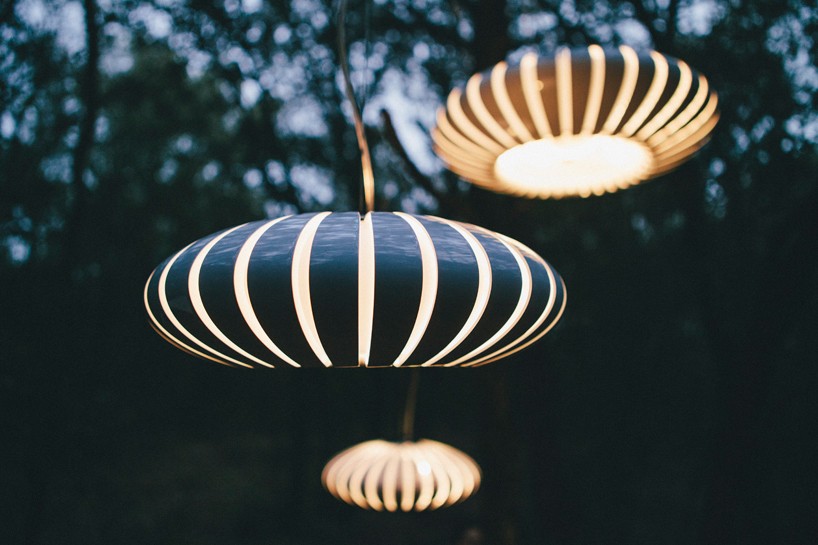
the marset ‘maranga’ light collection
‘the perfect lamp probably doesn’t because every user is different.’ stated christophe. ‘what is perfect for you may not be perfect for your neighbor or even your partner. perhaps to me, the perfect light is the right light for what it was designed for; it is comforting and beautiful as an object; it aesthetically represents the era when it was designed but has features that will allow it to last over time; it is made of good materials and is technically resolved in a skillful way; and its price does not exceed its value. I know I ask a lot!‘
‘then you have the lamp as totem: that piece with a noticeable presence that arouses interest and fills the space. this kind of lamp usually offers ambient lighting; it is secondary. and again you have the lamp that does not stand out aesthetically but makes life more comfortable when you turn it on. every object has the purpose for which it was designed.‘
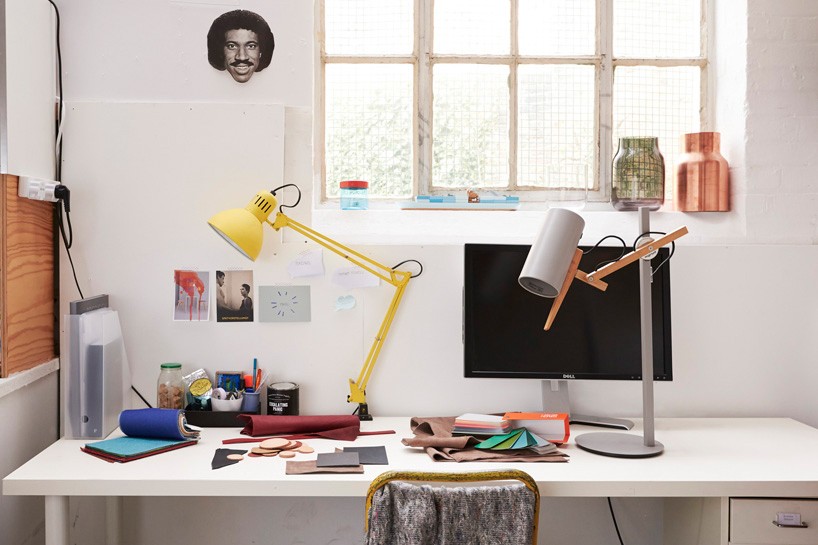
mathias hahn’s ‘scantling’ lamp for marset (left)
working with marset since 2010, industrial designer mathias hahn‘s work focuses on utility and the way typologies can adapt to our everyday lives in order to form meaningful objects. as well as trying to define what light is, he discusses the type of light that most influences his creations as part of the ‘reflections on light’ project.
‘you could say that light is the brushstroke that paints everything in the world. light is life,‘ stated mathias. ‘it is one of the essential things that exists. in today’s world, we all need light, and we are fascinated by it, its relationship with the visual, what we can see.‘
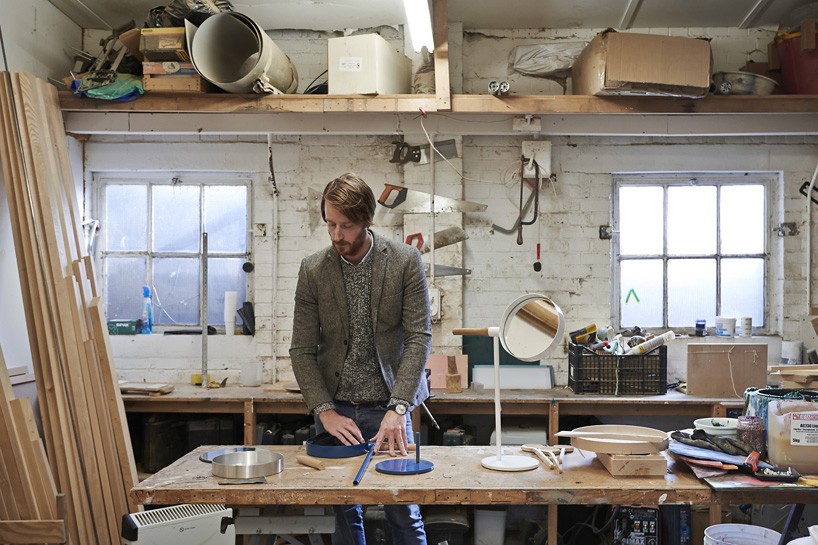
mathias crafting his lighting designs
‘observing natural light might trigger an idea but that’s as far as it goes. if we are talking about literately re-creating a phenonem of natural light with a product, this is nothing that I am interested in. natural light is best enjoyed naturally. we need artifical light when we don’t have natural light available, and it will always stay artifical. understanding man-made light in cultural terms is what excites me,‘ stated mathias.

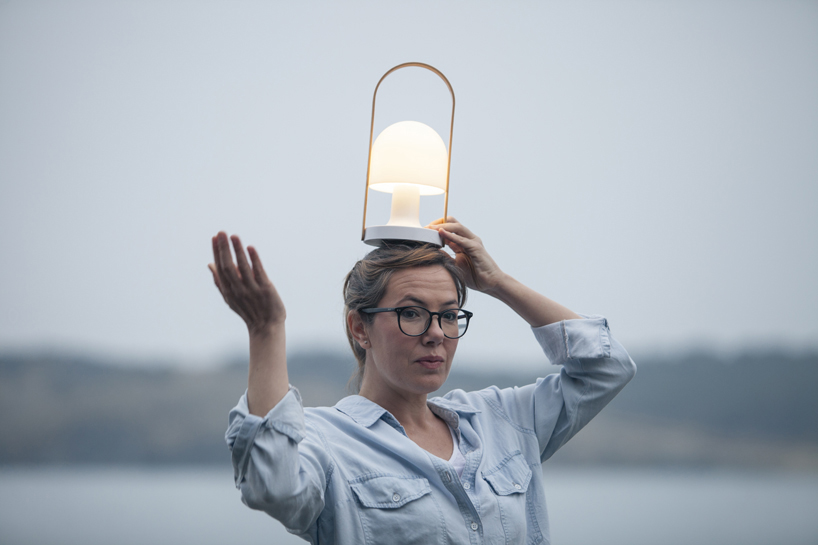
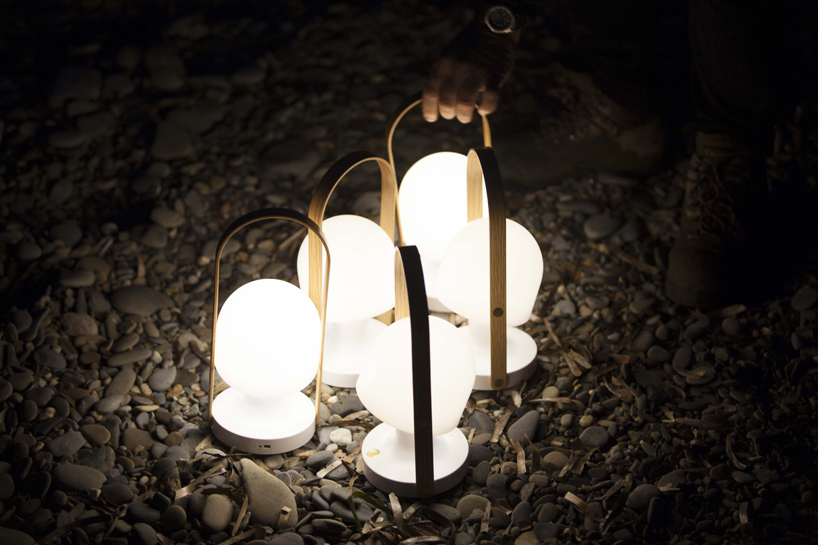
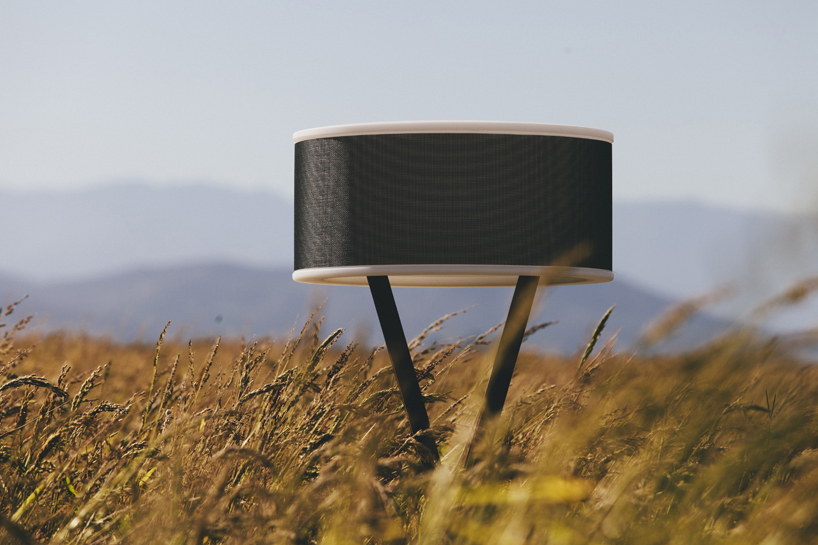
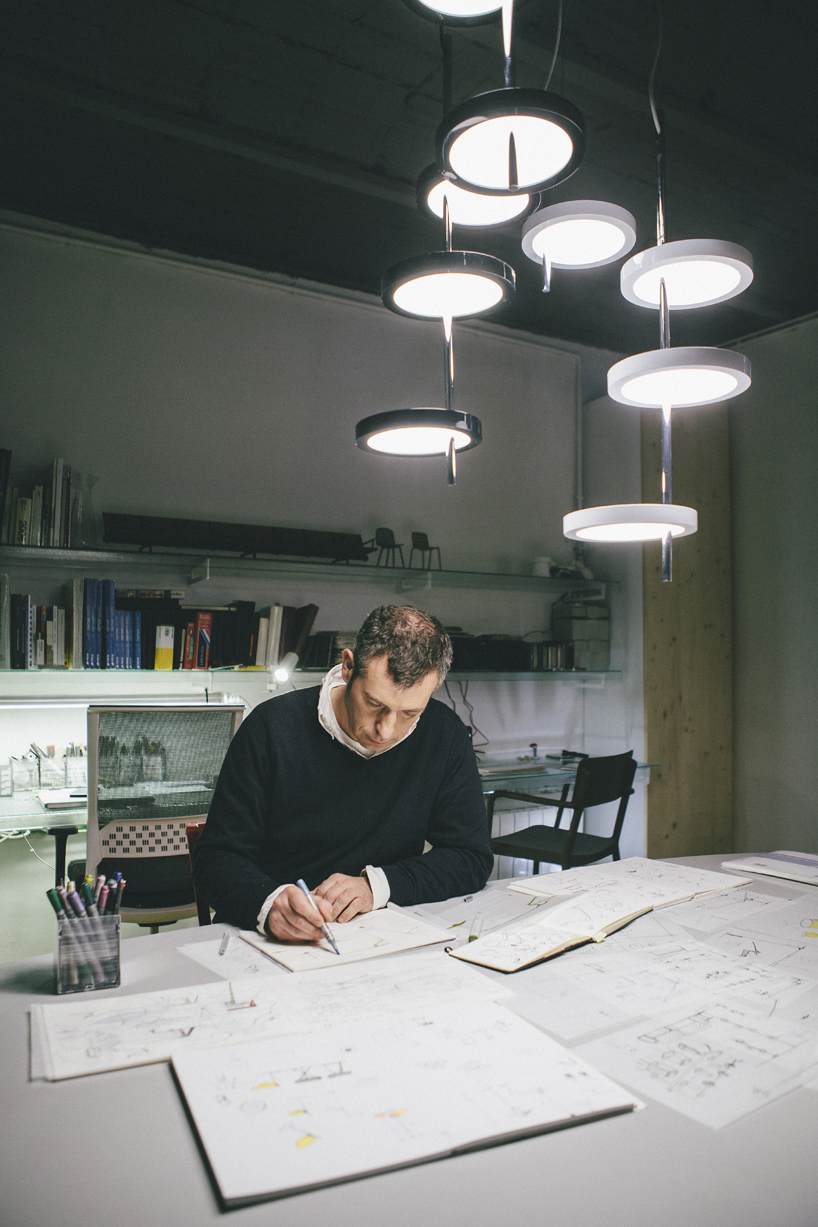
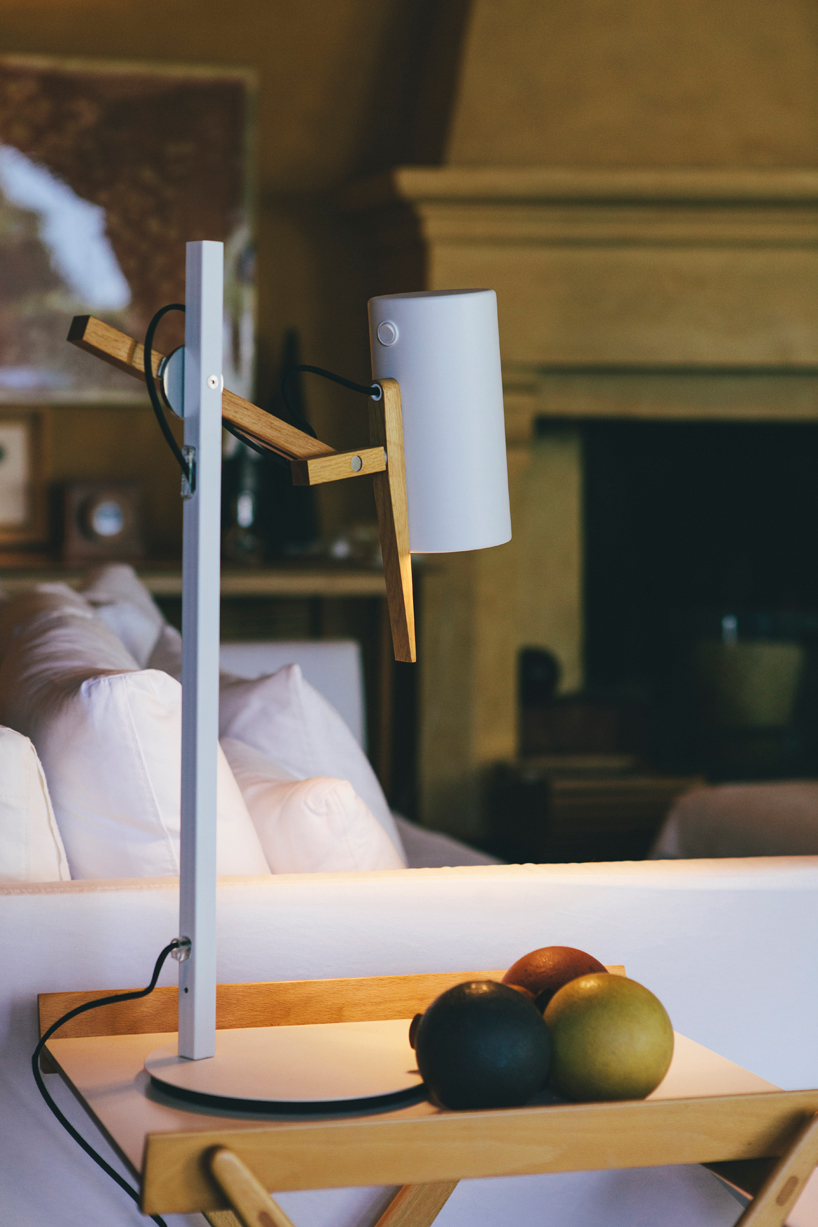
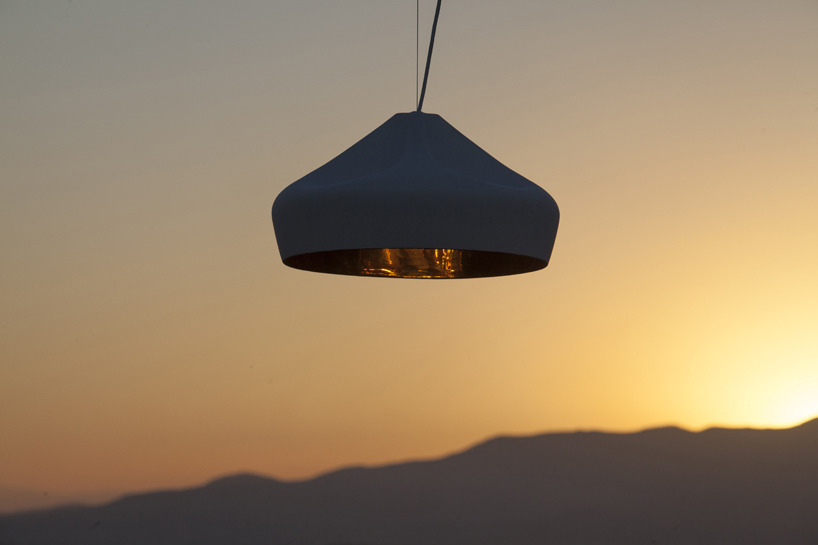
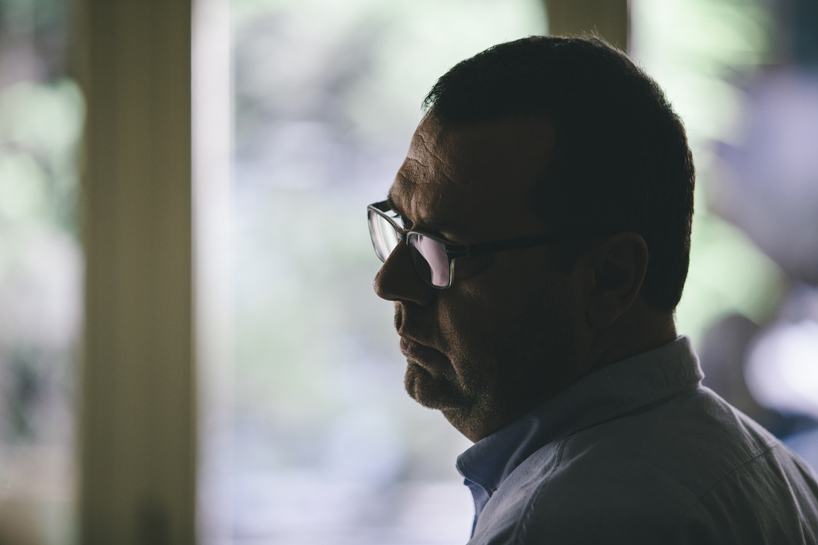
happening this week! holcim, global leader in innovative and sustainable building solutions, enables greener cities, smarter infrastructure and improving living standards around the world.
lighting design (500)
marset (10)
PRODUCT LIBRARY
a diverse digital database that acts as a valuable guide in gaining insight and information about a product directly from the manufacturer, and serves as a rich reference point in developing a project or scheme.



